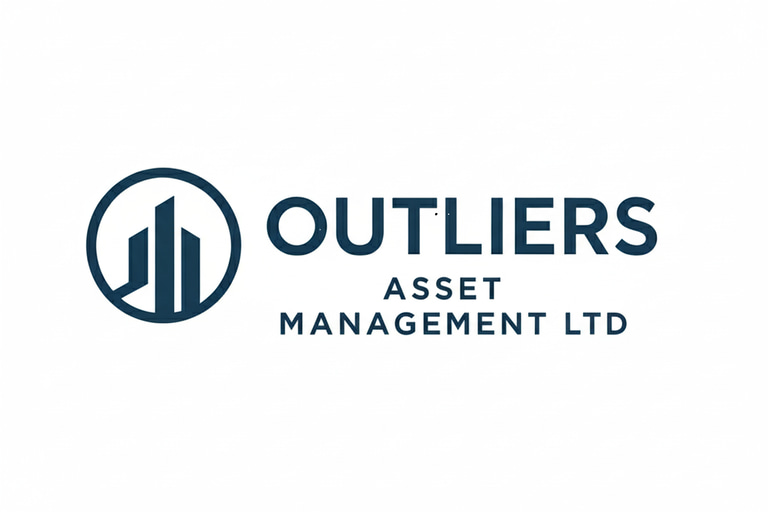
We make property investment in Glasgow accessible, rewarding and transparent for international investors
We empower international investors with innovative strategies —both entry and exit—that align with client’s unique investment goals and long-term objectives.
Asset Management
Crafting tailored strategies for market entry, exit, and long-term growth for international investors.
Comprehensive property valuation and market analysis for informed decision.
Ongoing support and property management throughout your investment process.
Investment Analysis
Client Empowerment
Your Trusted Asset Manager in Glasgow
Local Market Mastery: Based in Glasgow, we provide expert knowledge of the Scottish property market—from local rental trends to planning regulations—to maximise your portfolio's potential.
A Commitment to Your Assets: We manage your property with unwavering integrity and transparency, handling everything from tenant relations to maintenance with a focus on protecting your investment.
Maximising Portfolio Performance: We deliver proactive strategies designed to enhance property value, increase rental yields, and ensure sustainable, long-term capital growth for your assets.


Our Investment Philosophy
Investors can take many paths to make money and build wealth in property, we look at how each property strategy works, the advantages and disadvantages and how each has the potential to provide a return on investment.




Investment Strategies
Buying your home = security, lifestyle, emotional value. Investment property = wealth-building, rental income, financial growth.
Investment Thinking Circle
Don't be Greedy;
Run the Numbers;
Seek Advices
Exit Strategy
How Can We Help?
Navigating the Pitfalls of Overseas Property Investment
International property investment offers tremendous opportunities for wealth preservation and growth, but the unfamiliarity with local markets, legal systems, and business practices can lead overseas investors into costly mistakes that undermine their investment objectives and create ongoing problems that could have been avoided with proper guidance and preparation.
Like many Hong Kong investors seeking enhanced returns during Covid, I targeted the UK property market. In 2019, I acquired an investment property in Birmingham, drawn by the prospect of yields significantly higher than those available in Hong Kong.
With over three decades of professional experience in real estate investment and management, I initially felt confident in managing the entire investment process independently, believing I could bypass the overseas property agents and their associated costs.
To mitigate risk and ensure a robust acquisition, I executed a meticulous due diligence process:
I engaged a local surveyor for a detailed property condition assessment and market valuation.
I selected one of the largest and most reputable solicitor firms in the UK for the conveyancing work.
I conducted comprehensive desktop research covering local crime rates, school networks, demographic profiles, market activity, and the complex tax and legal frameworks for international buyers.
The initial phase was a complete success; the property was let at a decent yield within the same month the transaction was completed.
However, the operational phase quickly revealed the true costs and complexities of remote management. Despite a gross yield of 7–8%, recurring, disproportionate expenses began to erode profitability:
A non-functioning exhaust fan resulted in a $45 inspection fee and a $300 replacement cost.
A tenant non-renewal led to reletting agency fees equivalent to 1.5 months' rent.
The cumulative effect of these seemingly minor, recurring costs reduced the net yield to less than 4%.
The most critical issue, however, emerged 12 months post-completion: I discovered the property title had not been registered with the Land Registry. This fundamental oversight rendered the property unsaleable and prevented me from securing financing.
My attempts to resolve this with the appointed solicitor firm were met with consistent non-response, being placed on hold, or being transferred to staff unfamiliar with the case. Escalating the matter to the head of conveyancing and subsequently filing a complaint with the UK ombudsman yielded no result.
Only after submitting a formal complaint to the UK Law Society was the property finally registered within two weeks. Crucially, this resolution was achieved without a single apology or explanation from the major law firm responsible.
This experience, particularly the failure in a seemingly straightforward process like conveyancing by a leading firm, highlighted a profound disconnect and vulnerability for international investors.
Motivated by a desire to understand and address this systemic gap, I spent two years completing a Diploma in Conveyancing regulated by the Council for Licensed Conveyancers (CLC). My objective is now to leverage my deep real estate background and newly acquired specialist conveyancing knowledge to advise and protect international investors navigating the UK property market.
Navigating the Scottish Property Tax Landscape
In 2022, a friend relocating from Hong Kong successfully sold his apartment there and subsequently purchased his main residence in Glasgow. During the conveyance process, a crucial misunderstanding arose regarding the Additional Dwelling Supplement (ADS), a significant element of Land and Buildings Transaction Tax (LBTT) in Scotland.
When completing the solicitor's questionnaire, he indicated he was not a first-time buyer. This decision was based on a common, yet incorrect, interpretation that the first-time buyer status applied only to individuals who had never owned a residential property, either in the UK or overseas. As a result of this misstep, he was subjected to the 4% ADS.
Upon realizing he had wrongly interpreted the tax implications and was potentially eligible for an ADS refund, he approached his solicitor for assistance in submitting a refund claim. Regrettably, the solicitor declined this request, directing him instead to the Glasgow City Council.
Leveraging my professional background, which includes prior experience in land applications in Hong Kong and a foundational legal understanding, I contacted the Glasgow City Council, prepared and submitted the necessary refund application, and successfully reclaimed the 4% ADS within a month.
This experience highlights a recurring challenge for international investors and new immigrants: navigating the complexities of the Scottish tax system. Misunderstandings regarding tax liabilities like the ADS are common, often compounded by language barriers and a lack of established professional networks. Recognising this gap, I am now offering my services to help others successfully claim their rightful entitlements.


The saga involving Rachel Reeves and Angela Rayner isn’t just “a couple of politicians messing up”. It’s a stark illustration of how complicated the UK housing market is. Buying, selling and renting all involve layered rules — national tax regimes, local council licences, trusts, residence definitions, timing issues — and so even well-informed people can make costly errors.
For the average person navigating the market, the message is: do not assume simplicity. Take nothing for granted. Check, document, seek help, and plan.
When even Ministers get caught out, it suggests the system is not just hard for ordinary folk — it’s hard for the people designing it.
Renting is not just about national rules; local councils can require licences, especially in designated areas (e.g., for multiple-occupancy, HMOs, or selective licensing). If you’re letting a property, always check local authority requirements.
Investment Thinking Circle
Define their area of expertise. Invest only within that circle. Only Buy What You Understand.
Successful investment outcomes stem from rigorous discipline rather than luck. A robust investment framework is built upon four essential pillars designed to control emotional interference and enforce objective decision-making.
Don't Be Greedy. Disciplined investors neutralize the destructive forces of greed and fear by pre-setting rational profit targets and hard loss limits. Adherence to these boundaries ensures that selling decisions are based on the original investment thesis, not on volatile market sentiment.
Run the Numbers. This mandates rejecting market hype and grounding every decision in objective quantitative analysis. Rigorous valuation, which involves analyzing financial statements and projecting intrinsic value, is essential. If a business's fundamentals and projected cash flows do not justify the current market price, the opportunity is dismissed, safeguarding capital against overvaluation.
Seek Advice acknowledges the limits of individual expertise. Wise investors actively seek objective counsel from trusted professionals to validate their thesis and counter confirmation bias. This practice introduces diverse, specialized perspectives, ensuring all risks and opportunities are properly vetted, particularly when operating at the edges of one's circle of competence.
Exit Strategy. Every position must have a predetermined set of conditions—related to goal achievement, fundamental deterioration, or valuation overshoot—that trigger a sale. This tactical plan enforces the initial emotional limits and prevents the inertia that often leads to holding losing positions too long or realizing gains too late. Adopting these four disciplines transforms speculation into a methodical process of capital allocation.
Buy Your Home vs Investment Property
The decision to acquire a property involves two distinct strategic paths: buying your home and acquiring property purely for investment. While both involve tangible assets, the underlying objectives, metrics for success, and psychological returns are fundamentally different.
Buying your home is primarily an acquisition of security, lifestyle, and emotional value. Its chief return is the stability of shelter, the freedom to personalize one’s living space, and the intangible benefits of community and belonging. While a home may appreciate, it is often viewed as a consumption asset where the financial goal is not maximum cash flow but maximizing the quality of life, using the equity build-up as a personal savings mechanism. The value here is qualitative and deeply personal.
In contrast, an investment property is an acquisition focused entirely on wealth-building, rental income, and quantitative financial growth. Success is measured strictly by objective financial metrics: cash-on-cash return, capitalization rate, and net operating income. The goal is to generate passive income, leverage the asset for equity growth, and achieve favorable tax treatment. Emotional attachment is a liability; the property is a financial instrument whose sole function is to serve the investor's financial goals.
We deliver investment confidence
We provide expert analysis and comprehensive due deligent to validate your investment choices.
Outliers Asset Management Limited transformed my investment journey. Their expert guidance and innovative strategies made property investment in Glasgow accessible and rewarding.
John Chen

★★★★★
Contact
Get in touch with us today.
Connect
frank@outliersassetmgmt.com
+44 (0) 1410 271260
© 2025. All rights reserved.


